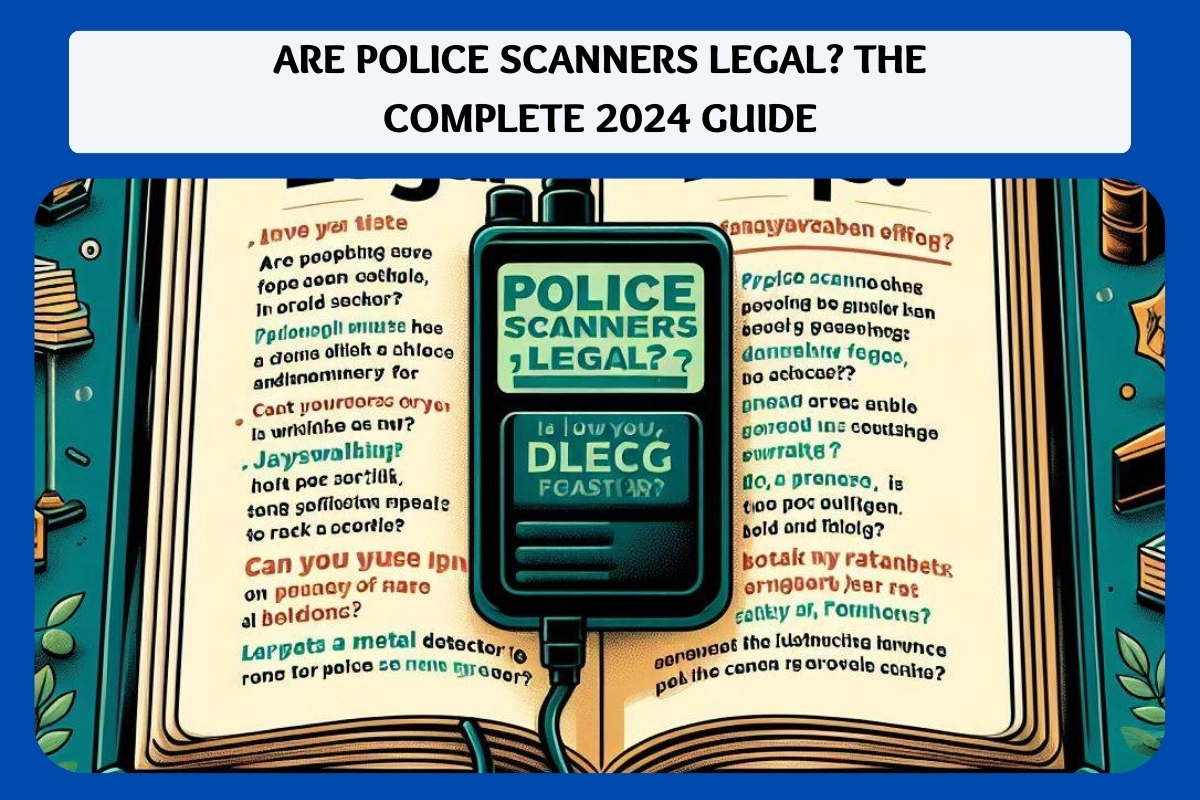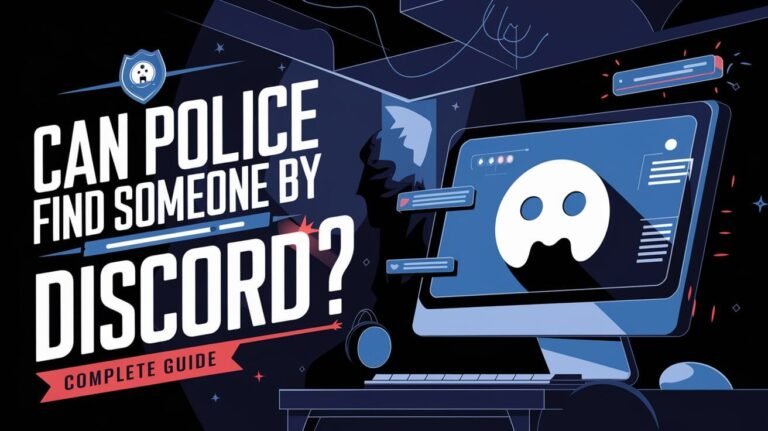Are Police Scanners Legal? The Complete 2024 Guide

Listening to live police communications has long captivated the curiosity of many. From journalists tracking breaking news to concerned citizens staying informed about their community, the allure of accessing real-time law enforcement activity is undeniable. But the legality of using police scanners, devices that can tune into these radio frequencies, is a topic of much debate and confusion. In this detailed guide, we’ll address the question: are police scanners legal?
We’ll cover the federal laws surrounding police scanners, state-specific regulations, restrictions on usage, legal alternatives, and best practices for responsible use. By the end, you’ll have a clear understanding of the legal landscape and how to navigate it properly.
What Are Police Scanners?
A police scanner is a radio receiver that can pick up and tune into various radio frequencies used by law enforcement agencies, fire departments, and other emergency services. These devices allow users to listen in on live communications between dispatchers and field units, providing a real-time glimpse into ongoing incidents, emergencies, and operations.
Police scanners have been around for decades, initially used by journalists, hobbyists, and even law enforcement agencies themselves to monitor activities beyond their immediate jurisdiction. As technology advanced, scanners became more sophisticated, with the ability to scan multiple frequencies simultaneously and even decipher encoded digital transmissions.
Federal Laws on Police Scanner Legality
On a federal level, there is no outright ban on the possession or use of police scanners in the United States. This is due to the 1934 Communications Act, which established that the airwaves are public property, and information transmitted over them does not inherently assume privacy.
Consumer-grade scanners cannot receive frequencies used by cellphones, military, government, and private agencies with legal privacy protections.
State Laws and Restrictions on Police Scanners
While the federal government has not prohibited police scanners, individual states have enacted their own laws and regulations regarding their possession and use. These laws vary widely across the country, with some states imposing strict limitations and others allowing relatively unrestricted access.
States Prohibiting Use While Driving
Several states, including Florida, Indiana, Kentucky, New York, and Minnesota, have laws prohibiting or restricting the use of police scanners while operating a motor vehicle. The primary concern behind these laws is to prevent drivers from using scanner information to circumvent speed traps or engage in other reckless behavior on the roads.
Laws targeting radar detectors also restrict police scanners and sometimes smartphone scanner apps
States Restricting Use for Criminal Activities
Several states, such as California, New Jersey, Michigan, Oklahoma, Rhode Island, South Dakota, Vermont, Virginia, Nebraska, and West Virginia, have laws that make it illegal to use a police scanner in the furtherance of a criminal activity.
For example, in California, it is a misdemeanor offense to intercept public safety radio communications without authorization if the intent is to aid in a crime or evade justice. Similarly, in Virginia, using a police scanner while committing a felony is a Class 1 misdemeanor.
The penalties for violating these laws can vary significantly across states, ranging from fines and probation to potential jail time, depending on the severity of the offense and the state’s specific statutes.
Felony Possession Restrictions
In some states, like New Jersey and Michigan, there are additional restrictions on the possession and use of police scanners by individuals with prior felony convictions, particularly those related to drug offenses or burglaries.
For instance, in New Jersey, individuals convicted of certain felonies involving controlled substances or burglaries are prohibited from possessing operational police scanners outside of their homes for a period of five years after their conviction.
Police Scanner Apps and Smartphone Laws
With the advent of smartphones and mobile apps, the legality of police scanner applications has become a point of contention. These apps essentially turn a user’s phone into a portable scanner, capable of accessing police radio frequencies almost anywhere.
While many of the existing state laws regarding police scanners were written before the widespread adoption of smartphones, some states have begun updating their legislation to address this new technology specifically.
Laws around scanner apps are unclear, with ongoing legal cases in some areas. Check your state’s current laws before using a scanner app, especially on mobile.
Legal vs. Illegal Uses of Police Scanners
Police scanners are generally legal to possess and use in most states, but there are situations where their use is illegal.
Legal uses of police scanners typically include personal and household use for informational or hobby purposes, as well as legitimate professional uses by journalists, security personnel, and even off-duty law enforcement officers.
On the other hand, using a police scanner in a manner that interferes with law enforcement operations, aids in the commission of a crime, or violates privacy laws (such as wiretapping) can result in criminal charges.
For example, using a scanner to monitor police activity and then relaying that information to someone actively engaged in criminal behavior could be considered aiding and abetting a crime. Similarly, using a scanner to intercept private phone conversations without consent could constitute illegal wiretapping.
It’s crucial to be aware of these potential legal pitfalls and to use police scanners responsibly and within the boundaries of the law.
Tips for Legally Using Police Scanners
When using a police scanner legally, take these precautions:
- Check your state and local laws: As mentioned throughout this guide, the legality of police scanners can vary widely across different jurisdictions. Research the specific laws and regulations in your area to ensure compliance.
- Use discretion and ethical judgment: Even if using a scanner is technically legal in your state, exercise discretion and good judgment. Avoid using the information obtained for any unlawful or unethical purposes.
- Consider legal alternatives: If you’re primarily interested in staying informed about local news and events, consider exploring legal alternatives like scanner websites or apps that aggregate publicly available information from official sources.
- Respect privacy: Be mindful of intercepting private communications or information that could compromise individual privacy or ongoing investigations.
- Seek professional advice: Seek legal counsel if you are uncertain about the legality of using a police scanner in a particular circumstance or if you have been charged with a related offense.
By following these tips and staying informed about the ever-evolving legal landscape, you can enjoy the benefits of police scanners while avoiding potential legal pitfalls.
The Bottom Lines
The legality of police scanners is a nuanced topic, with a patchwork of federal and state laws governing their possession and use. While the devices themselves are generally legal to own and operate in most parts of the United States, there are important exceptions and restrictions to be aware of.
From prohibitions on using scanners while driving to limitations on their use in criminal activities, each state has its own set of regulations. Additionally, the emergence of smartphone scanner apps has introduced new legal complexities that are still being navigated by the courts and lawmakers.
Responsible and lawful use of police scanners is crucial. Stay informed about relevant laws, exercise discretion, respect privacy and legal boundaries to enjoy these devices without legal consequences.
Remember, the key to safely and legally using police scanners lies in understanding and adhering to the applicable regulations in your jurisdiction. Stay informed, stay responsible, and enjoy the fascinating world of police communications within the confines of the law.






